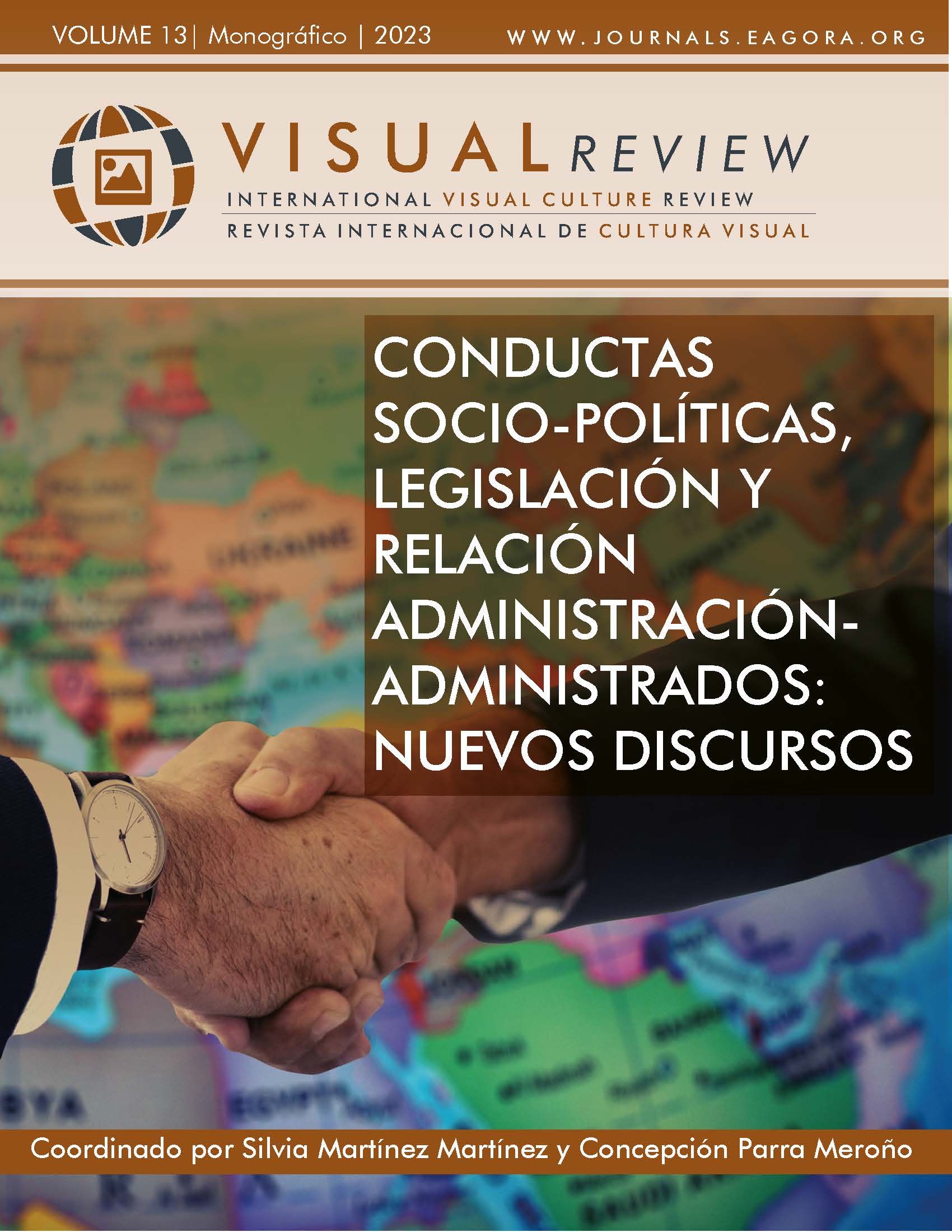Digital government, state modernization and citizen service
Considerations in a digital government strategy in Peru
DOI:
https://doi.org/10.37467/revvisual.v10.4567Keywords:
Digital government, Digital transformation, Digital connectivity, Information Society, ICT, Citizenship, CompetitivenessAbstract
The objective was to analyse the understanding of the importance and priorities of the factors that will contribute to implement digital government in the Regional Government of Lima Provinces. It was an exploratory research of descriptive scope, qualitative approach with documentary review strategy. An association and prioritization between these factors were identified with observance of dependence and interrelation. The Regional Government of Lima Provincias is developing e-government actions and undertaking a digital government strategy requires understanding the importance of the factors and the variables associated with them in order to establish a digitalization strategy.
Downloads
Global Statistics ℹ️
|
3308
Views
|
3934
Downloads
|
|
7242
Total
|
|
References
Al-kaabi, R. (2010). Critical Success Factors of e-Government: A proposal model for e-Government implementation in Kingdom of Bahrain. 6th International Conference on e-Government. Academic Publishing Limited.
Al-naimat, A. M., Abdullah, M. S., & Ahmad, M. K. (2013). The critical success factors for e-government implementation in Jordan. ICOCI 2013, 391–398.
Altameem, T., Zairi, M., & Alshawi, S. (2006). Critical success factors of e-government: A proposed model for e-government implementation. Proceedings of the IEEE Innovations in Information Technology Conference (IIT 2006), 19–21 November, Dubai, UAE. DOI: https://doi.org/10.1109/INNOVATIONS.2006.301974
América Digital (2021) Mentalidad de una Sociedad Digital: Caso de éxito del Gobierno de Estonia. http://bitly.ws/w9p9
Atalaya, D., & Tarazona, I. (2020). Identificación de factores críticos para la implementación exitosa del Gobierno Digital en el Perú desde la perspectiva de actores relacionados al Poder Ejecutivo. [Tesis Doctoral] Pontifica Universidad Católica, Perú. Repositorio Digital PUCP http://hdl.handle.net/20.500.12404/18347
Baena de Alcázar, M. (1996). La implantación de la “Nueva Gestión Pública” en el “viejo” continente: la experiencia anglosajona como modelo. II Congreso Español de Cª Política y de la Administración. Madrid. http://bitly.ws/w9pv
CAF (2020). The GovTech Govtech y el future del gobierno. https://scioteca.caf.com
Calderón, A. (2021). Perú Digital. El camino hacia la modernización. AMCHAM Perú, Amazon Web Services Institute. https://bit.ly/3A0bqvG
CLAD, C . C. (1998). Una Nueva Gestión Pública para América Latina. Economía y Sociedad, 4(09). https://www.revistas.una.ac.cr/index.php/economia/article/view/1577
Fernández, J. C. (2008). Reforma del Estado y tendencias de profesionalización de la función pública en Iberoamérica. Revista Centro Americana de Administración Pública, 54-55, 9-36.
Gil, J., Sandoval, R., & Luna, L. F. (2015). Avances y retos del Gobierno Digital en México. Universidad Autónoma del Estado de México.
IMD World Competitiveness Center (2020). IMD World Digital Competitiveness Ranking 2020. https://bit.ly/3fqf6zH
INEI (2021) Informe Técnico: Estadísticas de las Tecnologías de Información y Comunicación en los Hogares. https://bit.ly/3zBcgyF
Lee-Geiller, S., & Lee, T. D. (2019). Using government websites to enhance democratic E-governance: A conceptual model for evaluation. Government Information Quarterly, 36(2), 208–225. https://doi.org/10.1016/j.giq.2019.01.003 DOI: https://doi.org/10.1016/j.giq.2019.01.003
Lee, J. B., & Porumbescu, G. A. (2019). Engendering inclusive e-government use through citizen IT training programs. Government Information Quarterly, 36(1), 69-76 DOI: https://doi.org/10.1016/j.giq.2018.11.007
Ley No 27867, Ley Orgánica de Gobiernos Regionales (2022). Normas Legales No 7597. Diario Oficial El Peruano.
OECD (2014). Recommendation of the Council on Digital Government Strategies. OECD Publishing, Paris. https://bit.ly/3T1FrSe
OECD (2016). OECD Public Governance Reviews: Peru: Integrated Governance for Inclusive Growth. OECD Publishing. https://doi.org/10.1787/9789264265172-en DOI: https://doi.org/10.1787/9789264265172-en
OECD (2017). Embracing Innovation in Government Global Trends February 2017. https://bit.ly/3NzTCNu
OECD, & BID (2016). Broadband Policies for Latin America and the Caribbean. Broadband Policies for Latin America and the Caribbean. OECD. https://doi.org/10.1787/9789264251823-en DOI: https://doi.org/10.1787/9789264251823-en
OECD (2019). Digital Government in Peru: Working Closely with Citizens. OECD Digital Government Studies. OECD Publishing. Recuperado de https://doi.org/10.1787/0c1eb85b-en DOI: https://doi.org/10.1787/0c1eb85b-en
Mergel, I., Edelmann, N., & Haug, N. (2019). Defining digital transformation: Results from expert interviews. Government Information Quarterly, 36(4), 1–16. https://doi.org/10.1016/j.giq.2019.06.002 DOI: https://doi.org/10.1016/j.giq.2019.06.002
Morales, V., & Bayona, S. (2019). Factores Críticos de Éxito en el Desarrollo de E-Gobierno: Revisión Sistemática de la Literatura. Revista Ibérica de Sistemas e Tecnologías de Informação, E23, 233-247.
Pérez, G., Ortiz, D., Zafra, J. L., & Alcaide, L. (2011). De la New Public Management a la Post New Public Management, evolución de las reformas en la gestión de las administraciones públicas españolas. Revista de Contabilidad y Dirección, 13, 129-150.
Pittaway, J. J., & Montazemi, A. R. (2020). Know-how to lead digital transformation: The case of local governments. Government Information Quarterly, 37(4),101474. https://doi.org/10.1016/j.giq.2020.101474 DOI: https://doi.org/10.1016/j.giq.2020.101474
Porrúa, M. A. (2013). E-Government in Latin America: A review of the Success in Colombia, uruguay, and Panama. The global information technology report, 127-136.
Semana económica (2017). Del gobierno analógico al e-government. https://bit.ly/3fW0jwP
ONU (2020). UN E-Government Knowledgebase. Peru. https://bit.ly/3SWKEuO
Downloads
Published
How to Cite
Issue
Section
License
Those authors who publish in this journal accept the following terms:
-
Authors retain copyright.
-
Authors transfer to the journal the right of first publication. The journal also owns the publishing rights.
-
All published contents are governed by an Attribution-NoDerivatives 4.0 International License.
Access the informative version and legal text of the license. By virtue of this, third parties are allowed to use what is published as long as they mention the authorship of the work and the first publication in this journal. If you transform the material, you may not distribute the modified work. -
Authors may make other independent and additional contractual arrangements for non-exclusive distribution of the version of the article published in this journal (e.g., inclusion in an institutional repository or publication in a book) as long as they clearly indicate that the work was first published in this journal.
- Authors are allowed and recommended to publish their work on the Internet (for example on institutional and personal websites), following the publication of, and referencing the journal, as this could lead to constructive exchanges and a more extensive and quick circulation of published works (see The Effect of Open Access).














